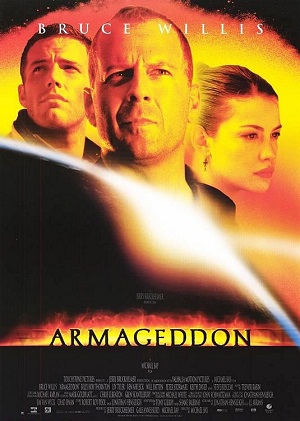
By Joe Young
Here’s a little nugget in the news that you might have missed: United Nations to Spearhead Asteroid Deflection Plan.
If you’re a UN hater, I know what you’re thinking. “Another waste of (insert official name of your nation-state here)’s taxpayer money. This ineffective and bloated bureaucracy is trying to take over the world.”
If you are a UN fanboy, I think I know what you’re thinking. “We need to globally cooperate to cooperate over global problems that affect the whole globe.”
Both of you are wrong. News of a UN asteroid plan is similar, I think, to current counterterrorism policy discussions. Let me explain.
Where should we (the US, other countries, the UN, scientists, etc.) be spending our time? At some level, it would be great to have a global office of Predicting All Things Ever (PATÉ). As economists will tell you, however, we face tradeoffs and have to choose where to invest our time and energies. Should we worry about asteroids hitting the Earth? A dirty bomb terrorist attack? Aliens invading? A solar flare? An electromagnetic pulse? If so, how much should we worry about each?
Big cataclysmic events get all the news. As John Mueller reminds us though, most of us are more likely to die by deer than terrorist attack. Distracted drivers (read texting, changing the radio, etc.), for example, kill thousands of people each year in the US alone. Bottom line: the mundane stuff is more deadly. Stopping an angry extremist bent on delivering biological agents to the masses seems like sound CT policy or a plot line of an episode of 24/Homeland/Die Hard 12, but the more banal stuff matters.
In the counterterrorism context, focusing our energies on the probable events, tracking down leads, using human intelligence, while not treating terrorism like a grave threat to our existence, is probably the optimal balance of trying to save lives without sapping resources from other noble endeavors. For scientists, investing some time in asteroids might be useful, but probably a lot less time then say worrying about climate change (man made or otherwise), infectious diseases, malnutrition, or any of a number of other threats to human security.
Asteroids may get us. It might be worth placing human capital towards this problem, but it also might be worth thinking more about less trendy things like malaria, which are far more actually deadly.








0 comments
Many humans seem to need enemies, and there are worse things to waste billions on than the remote chance of attack by asteroids. To increase the drama, though, I think they should throw in the possibility of hostile extraterrestrial organisms with arcane powers.
Hi Jorge. Agreed, an asteroid filled with hostile aliens looking to change our climate would be a great way to unite our planet against a common enemy.
I’ve been thinking a bit about this and I think the comparison between asteroid deflection and counterterrorism is an informative one. But one potential difference is their externalities. Beyond its strict opportunity cost excessive focus on preventing the threat of terrorism leads to civil liberties erosions and expensive wars of choice, and as Mueller has written a fixation on the threat of nuclear weapons is dangerous because it encourages aggressive anti-proliferation efforts. This makes the focus on big cataclysmic events like 9/11 or nuclear terrorism more expensive overall.
But I’m unsure what the negative effects of investing in asteroid deflection would be, beyond the opportunity costs highlighted here. Carl Sagan wrote in his book Pale Blue Dot that developing asteroid deflection technologies is dangerous because the same technology would allow for asteroids to be aimed, potentially giving dictators a new WMD. But I’m not sure this fear is particularly convincing. Sure asteroid deflection is a lot of money that could be spent better elsewhere, but beyond the opportunity cost I’m not sure how actively harmful it is.
Thanks Taylor. Point taken. I would just say that the opportunity costs are nontrivial, depending on much time/human resources are poured into it. This assumes a fungibility that may not be wholly accurate.
Amen! And if we’re not keen on asteroid deflection, who do we volunteer for the Bruce Willis role?
Ashton Kutcher?